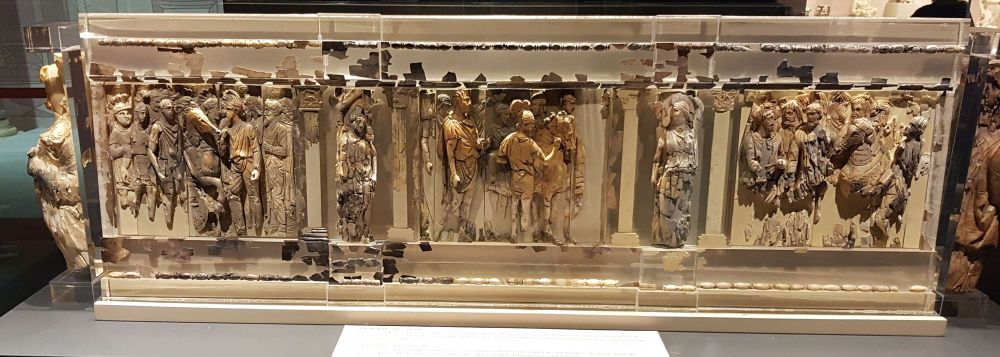

Ephesus, located in modern-day Turkey, is a treasure trove of antiquity, famously known for its well-preserved ruins from the classical Greek era, as well as Roman and Byzantine periods. One of the highlights in this region, rich with historical significance, is the Ephesus Museum. This museum serves as a custodian of artifacts and provides invaluable insights into the daily lives, beliefs, and artistic achievements of the ancient inhabitants of Ephesus.
The journey of Ephesus as a tourism hub began with its excavation in the late 19th century. Archaeologists from Britain and later, from Austria, unearthed the city’s fabulous monuments, which naturally drew the attention of curious travelers. Since then, the site has steadily grown into one of the most visited attractions in Turkey.
Initially, early travelers were scholars and the elite, but with the advent of more accessible travel in the 20th century, Ephesus opened up to tourists worldwide. The establishment of the Ephesus Museum in Selçuk in the 1920s further fueled interest by displaying an array of fascinating relics discovered during excavations.
Unlike typical archaeological museums, the Ephesus Museum is not organized entirely chronologically. Instead, it is thematic, focusing on the religion, domestic life, and death practices of the ancient city. Among the museum's most celebrated exhibits are the statues of Artemis of Ephesus, exquisite frescoes, and the intricate sculptures of mythological figures.
The museum also houses the 'Ephesus Artemis,' significant to the city's identity, as Ephesus was a cult center for the goddess. The museum enables visitors to journey into the heart of Ephesus's spiritual life.
In recent years, tourism in Ephesus has been shaped by the increasing demand for more authentic and immersive cultural experiences. Tourists seek comprehensive guided tours that provide in-depth stories and historical context, rather than simply visiting the sites.
Virtual reality experiences have also emerged, offering simulations of the ancient city in its former glory, thus enhancing the visitor experience. Furthermore, Ephesus’s listing as a UNESCO World Heritage Site in 2015 has cemented its status as a must-visit global heritage destination.
Sustainable tourism has also become a focus, with efforts to preserve the site’s integrity while accommodating large numbers of visitors. The implementation of visitor caps and regulated tour paths is an example of measures taken to preserve Ephesus for future generations.
For those planning to visit the Ephesus Museum, it is open to the public year-round, with extended hours during the tourist season. It stands not merely as a repository of items but as a storyteller of a grand historical narrative that continues to fascinate and draw visitors from all corners of the globe.
Anyone with an interest in history, archaeology, or the ancient world should consider the Ephesus Museum a pivotal part of their travel itinerary when visiting Turkey.